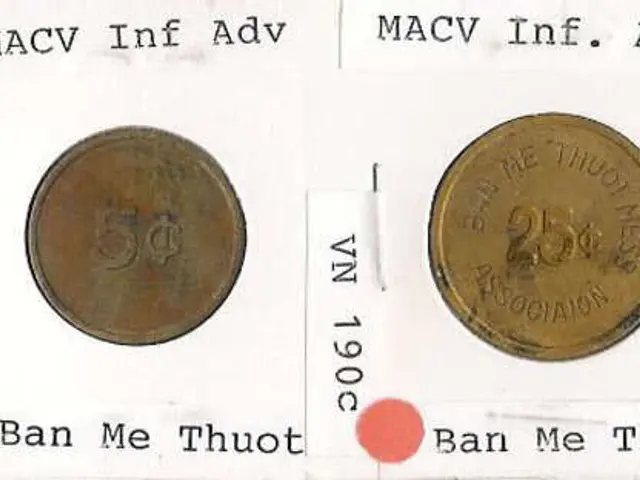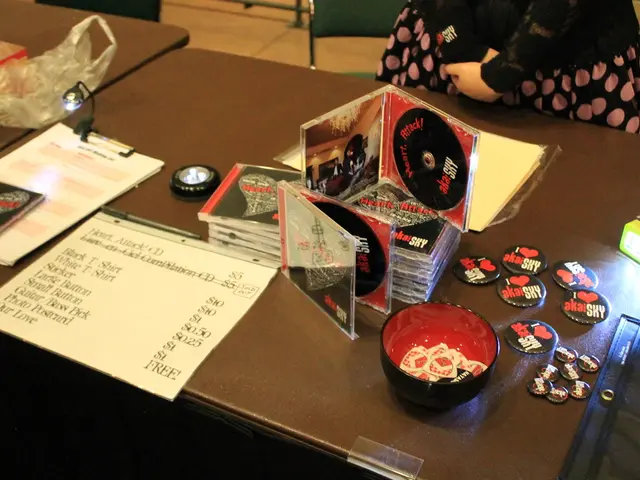Generational Preferences in Gambling: Millennials versus Generation Z
The online gambling industry is witnessing a significant shift in demographics, with two distinct generations - Millennials and Gen Z - exhibiting unique preferences and behaviors that are reshaping the landscape.
Millennials, aged roughly between 25 and 40, currently dominate online gambling revenue, accounting for approximately 47-52% of the market share in Europe and the US [1][2]. Their stable incomes and interest in traditional formats like live betting, fantasy sports, and cross-platform loyalty programs have driven this growth. Millennials show a strong engagement with features such as live betting and classic sports betting formats, favoring immersive on-the-go experiences and reliability.
In contrast, Gen Z, those under 25, is the fastest-growing demographic segment in online gambling, with a compound annual growth rate (CAGR) exceeding 8% to 14%, depending on the region [1][2]. This digital-native generation is drawn to more innovative, interactive, and social elements that align with their habits. They favor esports betting, micro-betting, and gamified experiences such as missions, leaderboards, live-streamed content, and integration with social media platforms [1][2][4].
To cater to these generational differences, the industry adapts in several ways:
- Targeting Millennials with fantasy sports integrations, loyalty rewards, and live betting formats, leveraging their propensity for traditional yet enhanced betting experiences [2][5].
- Attracting Gen Z through novel, gamified features, educational onboarding processes, user-friendly mobile apps, interactive and streaming-integrated odds, and social competitive elements such as leaderboards and challenges [1][2][4].
- Incorporating emerging technologies such as cryptocurrency, NFTs, and virtual reality, which appeal particularly to Gen Z’s affinity for digital innovation and immersive experiences [4].
These behavioral differences impact the online casino industry by driving platform innovations and marketing strategies that prioritize personalization, social interaction, and responsible gambling tools tailored to each cohort's preferences [1][2]. Regulators also emphasize early intervention and awareness campaigns to address the higher vulnerability of younger players to gambling-related risks [1]. Operators balance growth with player well-being through harm-mitigation tools like spend limits and active alerts [2].
While Millennials value skill-based gameplay and tournaments in online poker, younger Millennials prefer video poker. They are more inclined toward classic and digital slots, particularly those with familiar themes, progressive jackpots, and engaging bonus rounds. For Millennials, casinos should focus on familiarity, trust, and value, and also appreciate transparency and a sense of control.
In contrast, Gen Z prefers crash games and other instant-win formats that offer high-paced, adrenaline-fueled experiences. They are more susceptible to impulsive decisions due to their risk appetite and limited exposure to responsible gambling frameworks. Gen Z is drawn to VR casinos, enjoying customizing avatars, exploring 3D spaces, and feeling part of a digital world. They are also more attracted to social casinos, where gameplay is free or token-based, and the emphasis is on fun, aesthetics, and social sharing. Gen Z takes digital immersion to an entirely new level, gravitating toward casino environments that feel more like multiplayer arenas.
As the iGaming industry continues to expand, understanding the generational divide between Millennials and Gen Z is becoming absolutely essential for operators to ensure long-term success. By staying attuned to the evolving habits of each generation, the industry can continue to innovate in ways that feel authentic, engaging, and ready for the future, and choose the right platform and game providers to offer tailored experiences that speak directly to each group's preferences and ensure both engagement and growth.
References:
[1] Statista (2021). Online Gambling Market in Europe and the US. https://www.statista.com/topics/1162/online-gambling/
[2] Global Gambling Insights (2020). Millennial and Gen Z Gambling Behaviors. https://www.globalgamblinginsights.com/blog/millennial-and-gen-z-gambling-behaviors/
[3] Gambling.com (2021). The Impact of Millennials and Gen Z on the Online Casino Industry. https://www.gambling.com/news/the-impact-of-millennials-and-gen-z-on-the-online-casino-industry/
[4] Forbes (2021). How Gen Z Is Changing The Online Gambling Industry. https://www.forbes.com/sites/forbesbusinesscouncil/2021/08/12/how-gen-z-is-changing-the-online-gambling-industry/?sh=7a3c96e36b57
[5] The Guardian (2021). Fantasy Sports Betting: A New Frontier for Online Gambling. https://www.theguardian.com/technology/2021/aug/25/fantasy-sports-betting-a-new-frontier-for-online-gambling
- The gambling industry is experiencing a shift towards catering to the preferences of younger generations, with sportsbooks focusing more on features like fantasy sports, live betting, and mobile apps to attract Millennials, while incorporating gamified elements, esports betting, and social media integration to engage Gen Z.
- The rapid growth in online gambling among Gen Z is driving a new trend in the casino-and-gambling market, with operators increasingly offering instant-win games, virtual reality casinos, and social casinos to meet the preferences of this digital-native, rapidly expanding demographic.







